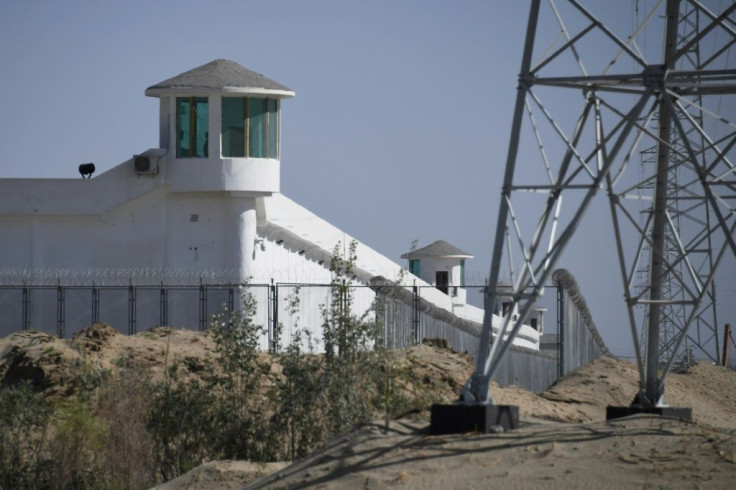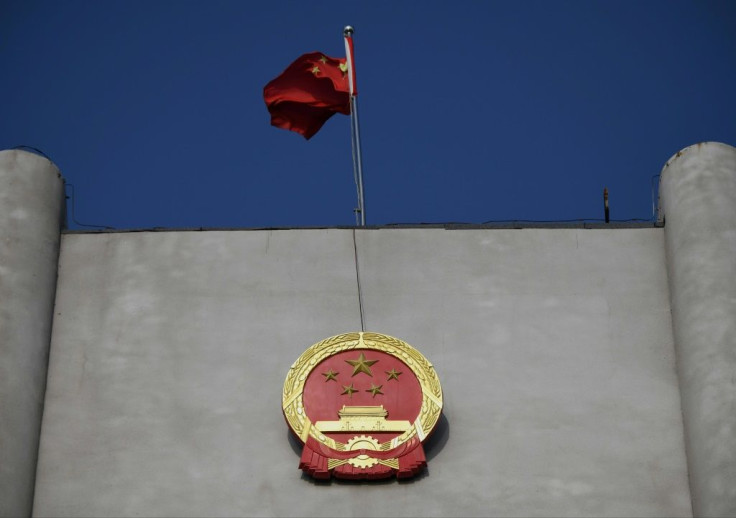China Sanctions US, Canadian Citizens In Xinjiang Row
China announced sanctions against two Americans, a Canadian and a rights advocacy body Saturday over their criticism of Beijing's treatment of Uyghurs, but Washington said the tit-for-tat measure would only intensify the spotlight on Xinjiang.
At least one million Uyghurs and people from other mostly Muslim groups have been held in camps in the northwestern region, according to rights groups, who accuse authorities of forcibly sterilising women and imposing forced labour.
The European Union, Britain, Canada and the United States sanctioned several members of Xinjiang's political and economic hierarchy this week over the allegations.
China retaliated Saturday, with its foreign ministry accusing the United States and Canada of imposing sanctions "based on rumours and disinformation".
The officials targeted by Beijing, who are also banned from conducting business with Chinese citizens and institutions, "must stop political manipulation on Xinjiang-related issues, stop interfering in China's internal affairs in any form," the ministry said.
"Otherwise, they will get their fingers burnt."

Two members of the US Commission on International Religious Freedom, Gayle Manchin and Tony Perkins, as well as Canadian MP Michael Chong, and a Canadian parliamentary committee on human rights, are prohibited from entering mainland China, Hong Kong and Macau, the foreign ministry said.
US Secretary of State Antony Blinken slammed the sanctions as "baseless", saying they would only shine a harsh spotlight on the "genocide" in Xinjiang.
"Beijing's attempts to intimidate and silence those speaking out for human rights and fundamental freedoms only contribute to the growing international scrutiny of the ongoing genocide and crimes against humanity in Xinjiang," Blinken said Saturday.
Chong called the sanctions a "badge of honour".
"We've got a duty to call out China for its crackdown in #HongKong & its genocide of #Uyghurs," he tweeted.
"We who live freely in democracies under the rule of law must speak for the voiceless."

Canadian Prime Minister Justin Trudeau described the measures as "an attack on transparency and freedom of expression".
Trudeau's comments came after top Canadian diplomat Marc Garneau accused Beijing of deploying heavy-handed tactics.
"Bullies don't change unless you send very clear messages to them," Garneau told the Canadian Broadcasting Corporation in an interview recorded shortly before Beijing announced its retaliatory sanctions.
The latest sanctions add to the ones announced earlier this week by Beijing against individuals from the EU and Britain.
Beijing flatly denies any abuses in Xinjiang, describing detention centres there as work camps intended to boost incomes and deter extremism.
The diplomatic standoff spilled over into the business world this week when pledges made last year by several companies to boycott Xinjiang cotton resurfaced on China's Twitter-like social network Weibo, triggering additional controversy.
The resurfacing of the pledges made by the likes of Sweden's H&M, American sportswear giant Nike, Germany's Adidas and Japan's Uniqlo, was denounced Friday by the United States, which implied it was a calculated move by Beijing.
"The US condemns... (China's) social media campaign and corporate and consumer boycott against companies, including American, European and Japanese businesses," State Department deputy spokeswoman Jalina Porter said.
Chinese celebrities and tech firms have already waded in, pulling out of partnerships with Nike, H&M, Adidas, Burberry and Calvin Klein.
China had previously sanctioned dozens of US officials including former secretary of state Mike Pompeo for "crazy moves" against Beijing under the Trump administration.
Meanwhile, Canada-China relations are at their lowest point in decades, with China trying two Canadians for alleged espionage this month while an extradition hearing in Vancouver for Huawei CFO Meng Wanzhou enters its final months.
© Copyright AFP 2024. All rights reserved.











